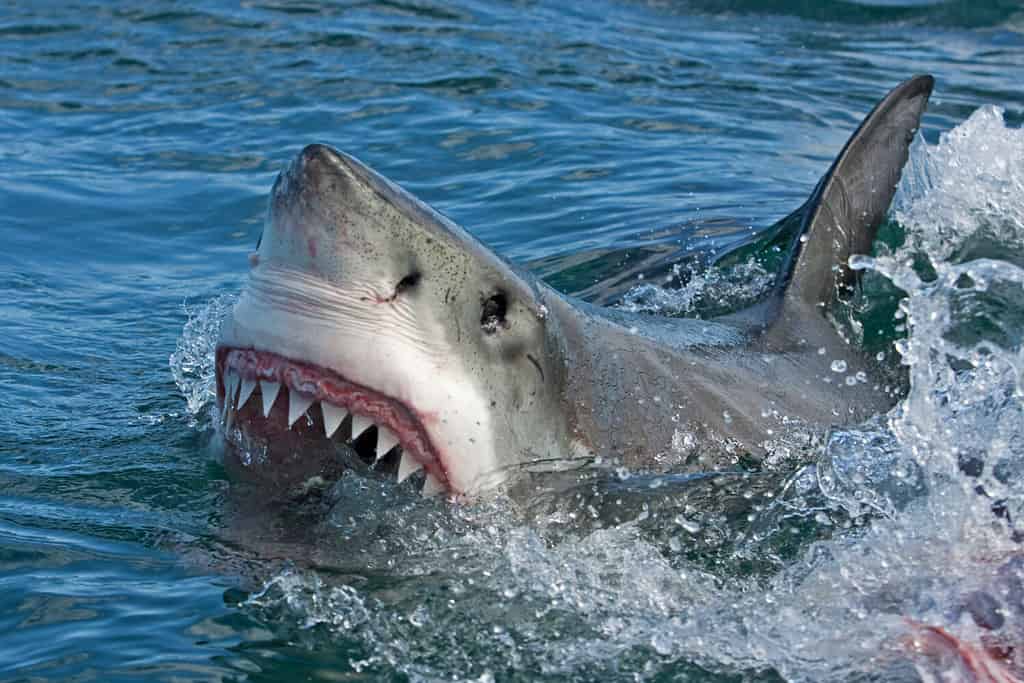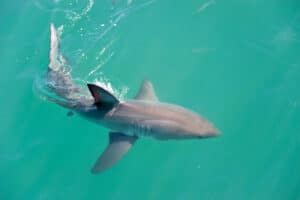Ocearch is a shark tracker and non-profit organization that professionals and shark-enthusiasts around the world use to keep an eye on certain sharks. All of the massive great white sharks with tags have names and quite a popular following online.
Around a dozen sharks are currently regularly pinging off the coastlines of Nova Scotia, New Brunswick, and Prince Edward Island, according to the Ocearch Shark Tracker website. Two of these huge animals have pinged their location near Prince Edward Island in Canada in summer of 2023.
Let’s introduce you to the main characters of this story. First we have a shark named Breton. Breton received his name after the beautiful people of Cape Breton, where the animal was tagged.

Cape Breton is a popular tourist attraction location and famous for migrating sharks.
©iStock.com/lightphoto
He was the first shark to be tagged as part of OCEARCH’s Expedition Nova Scotia in 2020. The adult male shark measures approximately 13 feet long and weighs roughly 1,437 pounds. Another massive great white shark Ocearch keeps track of that has appeared around Prince Edward Island around the same time is called Ironbound.
He is a great white shark that measures 12 feet, four inches in length, and he is quite evasive. The male shark, which weighs over half a ton, was first tagged in Nova Scotia in autumn of 2019.
A ping happens when the shark’s dorsal fin’s location tag stays above water for roughly 90 seconds. When this happens, a satellite detects it and updates the shark’s latest location.
How Far Do Sharks Travel?

Great whites can weigh up to 5,000 pounds!
©Martin Prochazkacz/Shutterstock.com
Enormous great white sharks travel huge distances every year. They go from their feeding sites to different feeding grounds that are located far away. In the wide open ocean, where the food they seek is in little supply, they can go as far as 2,500 miles.
Sharks would have to search extensively in the open ocean to find nourishment if they were scavengers. They move from one feeding area to another so that they can benefit from the seasonal richness, which is one reason for their migration.
Is Tracking Sharks Harmful to the Animal?
According to Ocearch, there is no proof that this tagging technique, which has been employed on sharks and other species for more than 50 years, affects the animals’ behavior or chances of survival after being released. However, some professionals are in disagreement.
The animal may wind up being permanently maimed by the tag. Many sharks with tags swimming about have fins that are seriously damaged. Furthermore, the stress it causes puts the animals at serious risk.
Despite their intimidating exterior, sharks are extremely vulnerable to stress-related mortality.
Thank you for reading! Have some feedback for us? Contact the AZ Animals editorial team.








